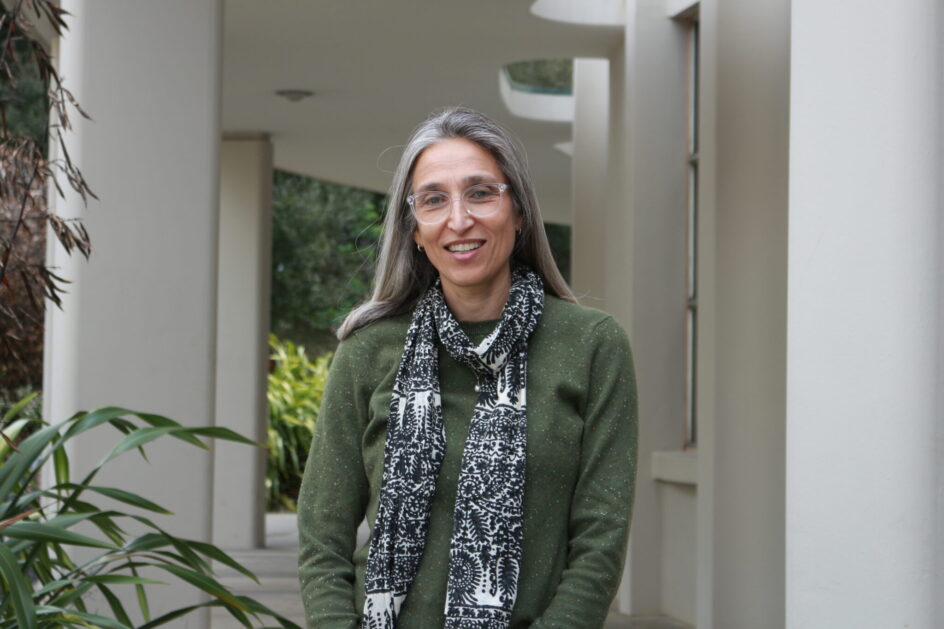Irani Builds New Collaborations as Associate Director of the Simons Institute
Computer Science Professor Sandy Irani has a bit of a commute these days, given that her main office has temporarily moved from the Donald Bren School of Information and Computer Sciences (ICS) at UC Irvine to the Simons Institute for the Theory of Computing at UC Berkeley. In August 2022, she started a two-year appointment as the new associate director at Simons, commuting to Berkeley each week from her home in Southern California.

“The Simons Institute has become an incredibly important center in theoretical computer science,” says Irani, who has been researching quantum computation for more than a decade. “I am one of the few people at UCI working in quantum computation from a computer science perspective,” she explains (adding there are many researchers at UCI in the physical sciences working on different aspects of quantum science). “I have benefited so much from my participation in Simons programs over the years … so when I was offered the position, it seemed like a great opportunity to spend more time up here.”
Exploring the Foundations of Computer Science
The Simons Institute is a magnet for researchers from a variety of fields. “It seems like everyone visits the Simons Institute at some point or another,” says Irani. In addition to bringing in people studying theoretical computer science, it also draws in scholars from fields such as physics, biology, neuroscience, game theory, and economics — fields leveraging models that are computational in nature.
The Simons Institute pursues research programs on topics within the foundations of computing as well as topics related to the theory of computing (TOC) in other disciplines. The institute refers to the latter as “TOC+X paradigms,” where X could be anything from engineering and technology to natural and social sciences.
Irani is spending a lot of her time corresponding with program organizers to help them put together a strong group of participants who will contribute to a great program. “The Simons Institute is continually growing in the types and scale of the activities we sponsor,” she says. “My plan is to make sure we are continuing to provide the first-rate experience to our visitors that we are known for, while also supporting all of these new projects and events.”
Working closely with staff, she is examining how best to support program activities. She’s also talking with people to identify important directions to pursue in future programs. “I enjoy the many conversations I have with colleagues talking about ways that theory can impact the world,” she says, “and how we as an institute can be a catalyst for new ideas which will have that kind of impact.”
New Collaborations
At the same time, Irani is continuing her own research and building new collaborations between UC Berkeley and UCI and between industry and academia. “I’m spending time here talking with the many students and postdocs interested in quantum computation,” she says, noting that she has a number of partnerships in the works, including a project that explores a fundamental problem in distributed computing.
“One of my favorite projects is a research problem with an old friend, Mike Luby,” she says. “We are working on a new algorithm for a maximal independent set that requires very little communication between the nodes in the network.”
Irani knows Luby, founder and CEO of the software company BitRipple, from her days as a computer science Ph.D. student at Berkeley. “I was a graduate student at UC Berkeley many years ago, and I have many fond memories of my time here. It’s great to be back on this campus,” she says. “And the Simons Institute is a one-of-a-kind organization.”
— Shani Murray